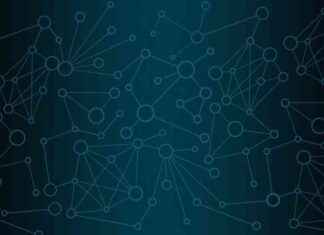Ms Pelosi, 82, who landed in Taipei on Tuesday evening, is the highest elected US official to visit the island claimed by Beijing in 25 years.
In previous days, as the trip was announced in the media without being officially confirmed, the Chinese government had increasingly raised its voice, threatening the United States with “consequences”.
Over the weekend, the country held live ammunition military drills in the Taiwan Strait.
Meanwhile, Hu Xijin, ex-editor of the Global Times newspaper, known for his nationalist tone, suggested on Twitter that Beijing could “forcefully drive out Pelosi’s plane”, or even “shoot it down”.
But, according to several analysts interviewed by AFP, behind this aggressive speech hides a certain insecurity from Beijing, which feels threatened by the initiatives of the United States and its Western allies to get closer to Taiwan and encourage its independence.
President Xi Jinping also intends to make a show of force against the United States before the Communist Party Congress this fall, which should grant him a third term as general secretary.
Last week, Mr. Xi also warned his American counterpart Joe Biden that Washington should not “play with fire” with regard to Taiwan.
“As a strong leader, the last thing he wants to show is any sign of weakness,” said Steve Tsang, director of the SOAS China Institute in London.
– Perfect diversion –
And playing on nationalist sentiments is also the perfect diversion as China sees its economy slow and its population grow impatient after more than two years of strict measures linked to its zero Covid policy.
“The Chinese Communist Party finds its legitimacy in two pillars: economic growth and nationalism,” said Willy Lam, a China policy analyst based in Hong Kong.
The skirmish around Taiwan therefore makes it possible to “divert the attention of the Chinese public from economic problems”.
China regards the island as one of its provinces, to be reunified one day with the rest of the country, by force if necessary. And exasperation is mounting in Beijing at the rapprochement at work in recent years between Washington and Taipei.
Since the Trump administration, some in Beijing believe that the United States is increasingly “in favor of Taiwan independence”, notes Li Mingjiang, professor of international relations at Nanyang Technological University in Singapore.
China stresses that the United States no longer respects what it considers a fundamental principle of bilateral relations, the “one China” policy.
She denounces sales of American arms to Taipei and increasingly frequent official visits to Taiwan by foreign political representatives.
Xi Jinping “is impatient and irritated to see that over the past year, senior leaders (…) not only from the United States, but also from Japan or even from the European Union have visited Taiwan”, notes Willy Lam.
At the same time, the young Taiwanese generations are increasingly claiming a separate identity, different from China.
If we add to this the fact that a pro-independence party has been in power in Taipei since 2016, “the Taiwan file does not seem to be off to a good start at all” for Chinese leaders, believes Li Mingjiang.
Beijing’s combative rhetoric is therefore aimed at “preventing cross-Strait and US-Taiwan relations from developing in a direction that poses even more problems for mainland China”, he adds. .
However, most observers consider an armed conflict unlikely in the immediate future.
“The last thing Xi Jinping wants is for a war to start accidentally,” said Titus Chen, professor of political science at National Sun Yat-Sen University in Taiwan.







